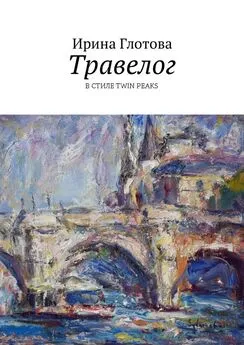Peake, Mervyn - 02 Gormenghast
- Название:02 Gormenghast
- Автор:
- Жанр:
- Издательство:неизвестно
- Год:неизвестен
- ISBN:нет данных
- Рейтинг:
- Избранное:Добавить в избранное
-
Отзывы:
-
Ваша оценка:
Peake, Mervyn - 02 Gormenghast краткое содержание
02 Gormenghast - читать онлайн бесплатно полную версию (весь текст целиком)
Интервал:
Закладка:
Because of the wild vista that surrounded Gormenghast and spread to every horizon as though the castle were an island of maroons set in desolate water beyond all trade-routes: because of this sense of space, how could Titus know that the vague, unfocused dissatisfaction which he had begun to feel from time to time was the fretting of something caged?
He knew no other world. Here all about him the raw material burned: the properties and settings of romance. Romance that is passionate; obscure and sexless: that is dangerous and arrogant.
The future lay before him with its endless ritual and pedantry, but something beat in his throat and he rebelled.
To be a truant! A Truant! It was like being a Conqueror - or a Demon.
And so he had saddled his small grey horse and ridden out into the dark April morning. No sooner had he passed through one of the arches in the Outer Wall and cantered in the direction of Gormenghast forest than he became suddenly, hopelessly lost. All in a moment the clouds seemed to have cut out all possible light from the sky, and he had found himself among branches which switched back and struck him in the darkness. At another time, his horse had found itself up to the knees in a cold and sucking mire. It had shuddered beneath him as it backed with difficulty to find firmer purchase for its hooves. As the sun had climbed, Titus was able to make out where he was. And then, suddenly, the long sunshafts had broken through the gloom and he had seen away in the distance - far further than he would ever have guessed possible - the shining stone of one of the Castle's western capes.
And then the flooding of the sun, until not a rag was left in the sky, and the thrill of fear became the thrill of anticipation - of adventure.
Titus knew that already he would be missed. Breakfast would be over; but long before breakfast an alarm must have been raised in the dormitory. Titus could see the raised eyebrow of his professor in the schoolroom as he eyed the empty desk, and could hear the chatter and speculation of the pupils. And then he felt something more thrilling than the warm kiss of the sun on the back of his neck: it was a reedy flight of cold April air across his face - something perilous and horribly exciting - something very shrill, that whistled through his qualmy stomach and down his thighs. It was as though it was the herald of adventure that whistled to him to turn his horse's head, while the soft gold sunlight murmured the same message in a drowsier voice.
For a moment so huge a sense of himself swam inside Titus as to make the figures in the castle like puppets in his imagination. He would pull them up in one hand and drop them into the moat when he returned – 'if' he returned. He would not be their slave any more! Who was he to be told to go to school: to attend this and to attend that? He was not only the 77th Earl of Gormenghast, he was Titus Groan in his own right.
'All right, then!' he shouted to himself, 'I'll show them!' And, digging his heels into his horse's flanks, he headed for the Mountain.
But the cold drift of spring air across his face was not only a prelude to Titus' truancy. It foretold yet another alternation in the weather, as rapid and as unexpected as the coming of the sun. For although there were no clouds in the upper air, yet the sun seemed now to have a haze upon it and the warmth on his neck was weaker.
It was not until he had covered over three miles of his rebellious expedition and was in the hazel woods that led to the foothills of Gormenghast Mountain, that he positively noticed a mistiness in the atmosphere. From then onwards a whiteness seemed to grow above him, to arise out of the earth and gather together on every side. The sun ceased to be more than a pale disc, and then, was gone altogether.
There was no turning back now: Titus knew that he would be lost immediately if he turned his horse about. As it was, he could see nothing but a lambent glow, gradually growing dimmer - a glow immediately before and above him. It was the upper half of Gormenghast Mountain shining through the thickening mists.
To climb out of the white vapour was his only hope and, jogging the horse into a dangerous trot, for visibility was but a yard or two, he made (with the pale shimmer above him for a guide) for the high slopes; and at last he found the air begin to thin. When the sun shone down again unhindered and the highest wisps of the mist were coiling some distance below. Titus realized in full what it was to be alone. The solitude was of a kind he had never experienced before. The silence of a motionless altitude with a world of fantastic vapour spread below.
Away to the west the roofscape of his heavy home floated, as lightly as though every stone were a petal. Strung across the capstone jaws of its great head a hundred windows, the size of teeth, reflected the dawn. There was less the nature of glass about them than of bone, or of the stones which locked them in. In contrast to the torpor of these glazes, punctuating the remote masonry with so cold a catenation, acres of ivy spread themselves like dark water over the roofs and appeared restless, the millions of heart-shaped eyelids winking wetly.
The mountain's head shone above him. Was there no living thing on those stark slopes but the truant child? It seemed that the heart of the world had ceased to beat.
The ivy leaves fluttered a little and a flag here and there stirred against its pole, but there was no vitality in these movements, no purpose, any more than the long hair of some corpse, tossing this way and that in a wind, can deny the death of the body it flatters.
Not a head appeared at any of those topmost, teeth-like windows that ran along the castle's brow. Had anyone stood there he might have seen the sun hanging a hand's-breadth above the margins of the ground mist.
From horizon to horizon it spread, this mist, supporting the massives of the mountains on its foaming back, like a floating load of ugly crags and shale. It laid its fumes along the flanks of the mountain. It laid them along the walls of the castle, fold upon baleful fold, a great tide. Soundless, motionless, beneath some exorcism more potent that the moons, it had no power to ebb.
Not a breath from the mountain. Not a sigh from the swathed Castle, nor from the hollow hush of the mists. Was there no pulse beneath the vapour? Not a heart beating? For surely the weakest heart would reverberate in such white silence and thud its double drum-note in far gullies.
The sunlight gave no stain to the chalky pall. It was a white sun, as though reflecting the mists below it - brittle as a disc of glass.
Was it that Nature was restless and was experimenting with her various elements? For no sooner had the white mist settled itself as though for ever, lying heavily in the ravine like a river of cold smoke - lying over the flats like a quilt, feeling into every rabbit burrow with its cold fingers - than a chill and scouring wind shipped out of the north, and sweeping the land bare again, dropped as suddenly as it had risen, as though it had been sent specifically to clear the mist away. And the sun was a globe of gold again. The wind was gone and the mists were gone and the clouds were gone and the day was warm and young, and Titus was on the slopes of Gormenghast Mountain.
SIXTEEN
Far below Titus, like a gathering of people, stood a dozen spinneys. Between them the rough land glittered here and there where threads of water reflected the sky.
Out of this confusion of glinting water, brambles and squat thorn bushes, the clumps of trees arose with a peculiar authority.
To Titus they seemed curiously alive, these copses. For each copse appeared singularly 'unlike' any other one, though they were about equal in size and were exclusively a blend of ash and sycamore.
But it was plain to see that whereas the nearest of these groups to Titus was in an irritable state, not one of the trees having anything to do with his neighbour, their heads turned away from one another, their shoulders shrugged, yet not a hundred feet away another spinney was in a condition of suspended excitement, as with the heads of its trees bowed together above some green and susurrous secret. Only one of the trees had raised its head a little. It was tilted on one side as though loth to miss any of the fluttering conversation at its shoulder. Titus shifted his gaze and noticed a copse where, drawn back, and turned away a little on their hips, twelve trees looked sideways at one who stood aloof. Its back was to them. There could be no doubt that, with its gaze directed from them it despised the group behind it.
There were the trees that huddled together as though they were cold or in fear. There were trees that gesticulated. There were those that seemed to support one of their number who appeared wounded. There were the arrogant groups, and the mournful, with their heads bowed: the exultant copses and those where every tree appeared to be asleep.
The landscape was alive, but so was Titus. They were only trees, after all: branches, roots and leaves. This was his day; there was no time to waste.
He had given the slip to that grey line of towers. Here about him were the rocks and ferns of the mountain, with the morning sunbeams dancing over them in hazes of ground-light.
A dragonfly hovered above a rockface at his elbow, and at the same moment he became aware of a great shouting of birds from beyond the copses.
To the north of the copses lay the shining flats, but it was from further to the west, and closer to the foot of the mountain where he stood, that the voices of the birds floated, so thinly and dearly; it was there that the wide forests lay basking. Fold after green fold, clump after clump of foliage undulating to the notched skyline.
His yearnings became focused. His truancy no longer nagged him. His curiosity burned.
What brooded within those high and leafy walls? Those green and sunny walls? What of the inner shadows? What of the acorn'd terraces, and the hollow aisles of leaves? His truant conscience lay stunned beneath the hammers of his excitement.
He wanted to gallop, but the slopes of shale and loose stone were too dangerous. But as he picked his way to lower levels the ground became correspondingly easier, and he was able to move more rapidly over considerable stretches.
The green wall of the forest rose higher into the sunny sky as he neared, until he had to raise his head to see the highest branches.
Gormenghast was hidden behind a rise in the ground to the west. To the east and behind him the slopes of the mountain climbed in ugly shelves. He drew in the reins and slid from the horse's back.
The ground about him was of silky and rather ashen grass, which shone with a peculiar white light. Rough rocks lay scattered about, in the shadow of whose hot brows and thrust-out jaws a variety of ferns grew luxuriously.
Lizards ran across the hot upper surfaces, and with Titus' first step towards the forest wall a snake slid down a rockface like a stream of water and whipped across his path with a rattling of its loosely-jointed tail.
What was this shock of love? A rattle-snake; a den of silky grass; some great rocks with lizards and ferns, and the green forest wall. Why should these add up to so thrilling, so breath-taking a total?
He knotted the reins loosely about the pony's neck and gave it a long push in the direction of Gormenghast. 'Go home,' he said. The pony turned her head to him at once and then, tossing it to and fro, began to move away. In a few moments she had disappeared over the rise in the ground, and Titus was truly alone.
SEVENTEEN
The morning classes had begun. In the schoolrooms a hundred things were happening at the same time. But beyond their doors there was drama of another kind: a drama of scholastic silence, for in the deserted halls and corridors that divided the classes it surged like a palpable thing and lapped against the very doors of the classrooms.
Читать дальшеИнтервал:
Закладка:



